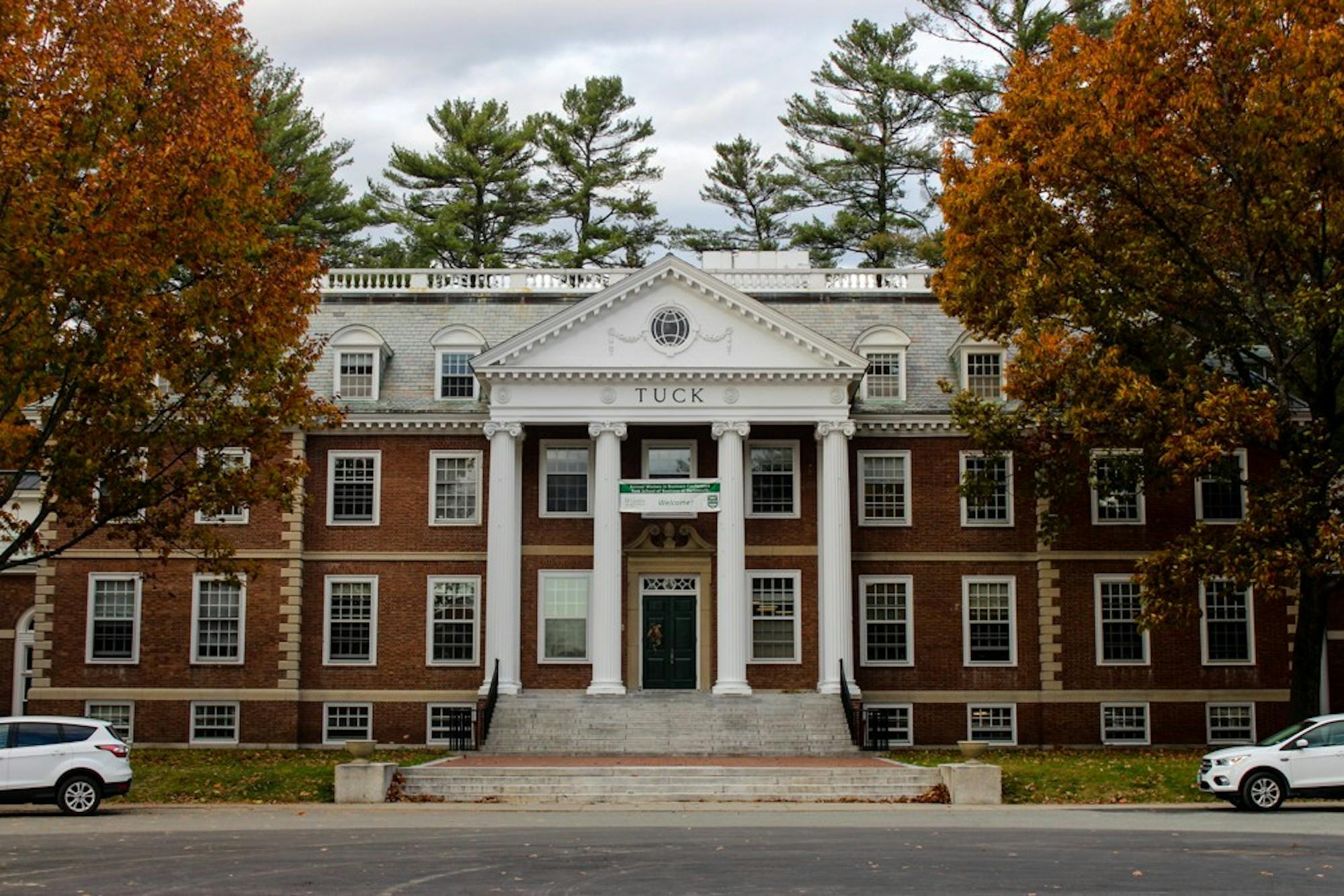On Sept. 29, Dartmouth held its annual Artificial Intelligence Conference, hosting experts in art, banking, business, health and investment who discussed the applications of artificial intelligence and popular arguments against its use.
Saeed Hassanpour — the Dartmouth Center for Precision Health and AI director — said at the event that artificial intelligence can aid health-related initiatives. He noted that AI “can sift through … a large amount of data in a small amount of time,” to predict outcomes of potential treatment options. Hassanpour added that he is currently working with AI to research cancer treatments.
Lisa Marsch, Dartmouth Center for Technology and Behavioral Health director, discussed at the conference the benefits of AI in helping patients who are anxious to seek help.
“Not everybody’s going to go seek a prescriber,” Marsch said.
Marsch said that patients appreciate digital therapeutics, a term that refers to delivering a medical-grade intervention entirely through software, adding that FDA-approved prescriptions of software are now available in the U.S. She stressed the need for these low-stigma services and the “widespread availability of these devices.”
Jasmine Lombardi — Chief customer officer at Locus Robotics — spoke toward the end of the conference on the impact of AI on the workforce, specifically in warehouses. Lombardi said that the average worker in a warehouse has a “tough life,” walking miles a day in hot temperatures and doing manual labor. Locus makes robots that act as moving platforms, carrying heavier items to which carry heavier items to minimize the risk of worker injuries.
“[Locus robots are] going to help you, not take away your job,” Lombardi said.
Aditya Bhasin, chief technology and information officer for Bank of America, spoke about working to minimize AI’s bias in the world of finance.
“Our models actually have to have explainability,” Bhasin said. “If a model’s not explainable, you can’t say to somebody, ‘We didn’t make you a loan because the computer said no.’”
Bhasin talked about the ethical dilemma of “[AI] augmenting human capability.”
“No matter how artificially intelligent the creation of something was … the human accountability cannot be lost,” he added.
Film and Media studies and digital humanities professor Mary Flanagan said that she thinks that creative integrity will be preserved in the era of AI, and that she often creates her own pieces of art after feeding a prompt to an AI software and then using the generated image as reference.
“I have my own voice,” Flanagan said. “[I] know what I’m looking for.”
Flanagan also spoke about the controversial aspects of AI, specifically with the arts. She noted that AI did not have a dataset trained on women’s art, until she undertook the effort herself.
“Which things do we value?” Flanagan asked the audience. “[I] started thinking about how biased our systems are … Whose work is valued?”
In an interview with The Dartmouth following the event, 401 Ventures partner Graham Brooks said he feels concerned about AI from an “academic” standpoint, rather than a “Terminator … who’s gonna take over the world?” perspective.
“The way that these [AI] models work, they don’t understand facts,” Brooks said. “They process information in a very different way. That said, they do it in a pattern-matching way… fundamentally, one could argue that humans do [this just] as well.”
When asked about his opinions on AI in academia, Brooks said that AI is “similar to calculators and the internet … They are tools that are gonna be available.” He said that we should be “figuring out how to teach with [AI] in a very open way.”
“You go back down to elementary school,” Brooks added, “that’s where it gets a little bit harrier … There is a level of … basic understanding that needs to be done.”
Brooks spoke about how age differences can influence the extent to which students use AI.
“[Young children] don’t have that level of maturity and responsibility to use it in a positive way,” Brooks said. “But … if you’re in college, and you can use [Chat] GPT to write an essay, let’s say … if you were gonna write that essay in 12 hours … now you can … actually do the writing in an hour, or two hours. You’re gonna spend 10 more hours on the critical thinking and the outlining.”
For all his insistence on the benefits and relative public acceptance of AI, he clarified that AGI (artificial general intelligence) is “not going to be a cure-all,” providing the example of global warming.




